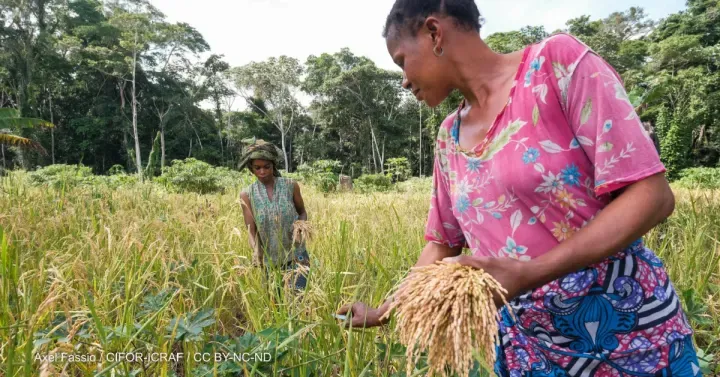Opinion: Invest in Africa's food systems to avoid future crisis

As the human suffering brought on by the Ukraine conflict continues, the rest of the world is bracing for major disruptions in the global food supply chain as a result. Because Ukraine and Russia are significant producers of wheat, and Russia of fertilizer and oil, it's clear that the cost of the world's heavy dependence on limited sources for food commodities is becoming riskier.
To mitigate that exposure, we must work to make the world's poorest people less vulnerable to these major shocks by strengthening local food systems. Doing so in Africa will have a significant upside ' developing the last agricultural frontier to help feed itself and the world.
Africa as a whole is a'net importer of food'and has some of the highest rates of'food insecurity'and'malnutrition'in the world. But it also has the world's largest remaining tracts of arable land available for cultivation and a growing agricultural and food ecosystem. Now is the time to invest in local and regional food systems to address African needs and also bring Africa 'online' as a net food exporter.
With a global population reaching'9.9 billion by 2050, with at least'25%'of that in Africa alone, we have no other choice. Because of the continent's size and diversity, it is the best hope to help the world mitigate future food shocks and the human suffering that results from it.
With'the Russia-Ukraine war beginning its third month, it is already having a significant impact on food prices here in Zambia. My company Java Foods, a Zambian food processor that makes affordable fortified foods including instant noodles and cereals'that thousands of people rely on, has already been affected.
Though Zambia is self-sustaining in'maize, wheat, and'soya bean, Java Foods' production is still dependent on imports of other key raw materials such as cooking oil, fortificants, and packaging.
We have already witnessed an increase in pricing of these imports in part due to supply chain disruptions but also weakening of the local currency. Conflict-related fuel price hikes are costing us more to distribute our products and we are having to raise our prices simply to survive. My customers, many of whom shop for food in informal markets and can only afford to buy enough food for a few days, are really struggling to afford this.
This problem is not unique to the current crisis. Our global food system is constantly under pressure and that will only increase as resources diminish and climate change consequences grow. To ensure there is enough affordable and nutritious food for everyone, regardless of any short-term crisis, Africa needs to be able to sustain itself and become a bigger part of the global food system.'That can happen, but it will take time.
Significant gains have already been made. Crop yields are up and investment is growing. In the past month alone, two African agricultural tech startups announced'nearly'$100 million in investment financing.
)
)
)



)
)
)
)
)
)
)
)
)
)
)
)
)
)
)
)
)
)
)
)
)
)
)
)
)
)
)
)
)
)
)
)
)
)
)
)
)
)
)